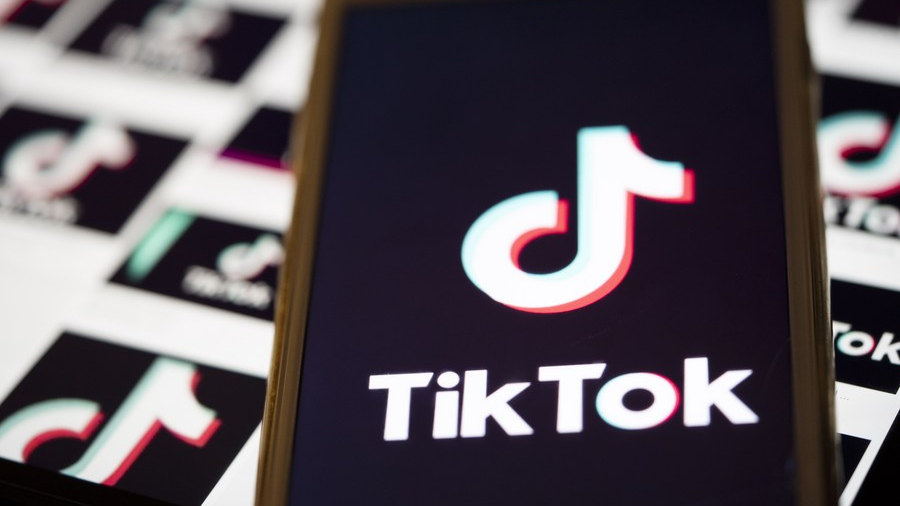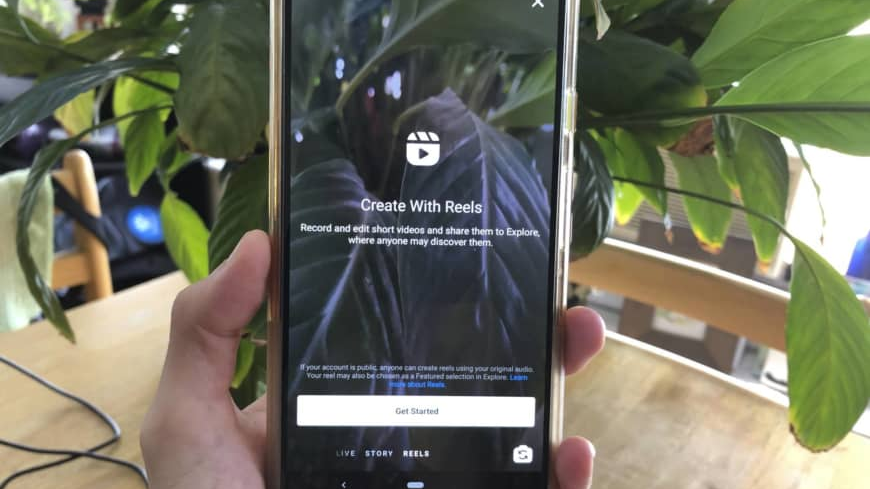
The logo of TikTok is displayed on the screen of a smartphone on a computer screen background in Arlington, Virginia, the United States, August 3, 2020. /Xinhua
The logo of TikTok is displayed on the screen of a smartphone on a computer screen background in Arlington, Virginia, the United States, August 3, 2020. /Xinhua
Editor's note: Yannan Collins is a consultant with a media background and qualifications based in the United States. The article reflects the author's opinions, and not necessarily the views of CGTN.
Three days after Trump vowed to ban TikTok with an executive order, he reversed his stand on this video-sharing app, asking TikTok to be sold to Microsoft as well as to give "a cut" of the deal to the U.S. Treasury.
This coercive move is utterly disturbing, as it contradicts all the so-called American values - free-market, fairness, due process, diversity, competition, equality, freedom of speech, justice and pursuit for success. There is no excuse to justify the pushback against TikTok.
TikTok's owner ByteDance is by any standard a successful company and its founder Zhang Yiming is by any American standard a successful entrepreneur. Zhang is a serial entrepreneur who has built multiple popular internet products, created employment in the high-tech sector in different countries and pushed for innovation in internet technology.
Instead of being a copycat and cookie-cutter, the stereotype of Chinese businessmen that the U.S. has all accused of now and then, Zhang is a successful pioneer entrepreneur in the field if he is an American. However, when the business owner is Chinese, it shows hypocrisy that the business is considered by the U.S. as a threat to national security.
TikTok, like many social media apps these days, uses the AI-driving algorithm to sort out content for individual users. The application does collect data such as content and time-length, but the key point should be how the application uses these data.
According to officials in Washington, the main issue with TikTok is that the data collected by TikTok could end up in the hands of the Chinese company and, eventually, the Chinese government. The only difference between TikTok and other popular social media apps is that the U.S. government does not have access to the data TikTok collected.
The U.S. does not have any central data security privacy regulatory system. Part of the reason is the tech giants and the U.S. governmental agencies want to take advantage of the data collected from all around the globe.
The lack of regulation allowed data to become a commodity, therefore the unaccountable methods of data collection are allowing data brokers to build up profiles of people around the world that can be purchased.
The U.S. National Security Agency (NSA) and Central Intelligence Agency (CIA) capitalize on the data collected by setting up mass surveillance programs, and the most notorious of all is the PRISM, which has direct access to servers of several technology giants in the States.

Instagram's short video app Reels is displayed on a mobile phone in New York City, the U.S., August 5, 2020. /AP
Instagram's short video app Reels is displayed on a mobile phone in New York City, the U.S., August 5, 2020. /AP
As the U.S. has constant security breaches, combined with that Microsoft has a history of sharing data with NSA, data from TikTok users are more likely to be abused under Microsoft than it does under TikTok.
Some argue that this move is similar to what happened to Google China in 2010. Yet, they are fundamental different.
To manage the increasingly dynamic but complex internet market, China started to enforce more regulations in 2010. Some companies chose to follow the rule, such as LinkedIn; and some companies were not willing to follow the rule thus they left, such as Google.
The sanction against TikTok, however, has zero due process. There was no instruction as to how TikTok can adjust to fulfill any regulation and no evidence that TikTok is breaching any national security law.
This move, nevertheless, is for Trump's re-election and retaliation.
TikTok is famous for sharing dance moves, trends, and of course, political opinions. The Generation Z, the main users on TikTok who are normally young and first-time voters, have rubbed the administration by pranking Trump and his businesses.
The most recent and probably most irritating to the administration is some say that TikTok users are promoted to buy Trump's Tulsa campaign rally but did not show up and that made the rally venue looked empty.
This move works in favor of his re-elections because, on one hand, it distracts people from the real issue - his failure in handling the pandemic and on the other hand, it repeats the anti-China appeal to his conservative voter base.
It also exposed the hypocrisy of some of Trump's opponents. Both the former Democratic Party presidential candidate Andrew Yang and the U.S. Senate Minority Leader Chuck Schumer have openly supported the retaliation against TikTok, but both have claimed they are defenders of the free market and law and order.
As the U.S. 2020 presidential election day is approaching, Trump is doing whatever he can to get elected. The anti-China hysteria is one of the easiest cards to play. As we may see more soon, we need to get prepared.
(If you want to contribute and have specific expertise, please contact us at opinions@cgtn.com.)